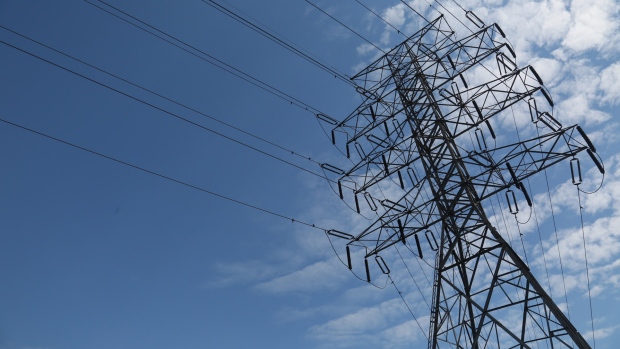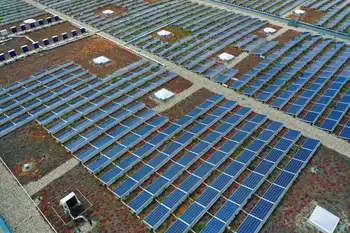California energy rebate freeze disrupts heat pump incentives, HVAC upgrades, and climate funding, as federal uncertainty stalls Inflation Reduction Act support, delaying home electrification, energy efficiency gains, and greenhouse gas emissions reductions statewide.
Key Points
A statewide pause on $290M incentives for heat pumps and HVAC upgrades due to federal climate funding uncertainty.
✅ $290M program paused amid federal funding freeze
✅ Heat pump, HVAC, electrification upgrades delayed
✅ Previously approved rebates honored; new apps halted
California’s push for a more energy-efficient future has hit a significant roadblock as the state pauses a $290 million rebate program aimed at helping homeowners replace inefficient heating and cooling systems with more energy-efficient alternatives. The California Energy Commission announced the suspension of the program, citing uncertainty stemming from President Donald Trump’s decision to freeze funding for various climate-related initiatives.
The Halted Program
The energy rebate program, which utilizes federal funding to encourage the use of energy-efficient appliances such as heat pumps, was a crucial part of California’s efforts to reduce energy consumption and greenhouse gas emissions. By providing financial incentives for homeowners to upgrade to more efficient heating and cooling systems, the program aimed to make green energy solutions more accessible and affordable to residents. The rebate program had been popular, with many homeowners eager to participate in the initiative to lower their energy costs and improve the sustainability of their homes.
However, due to the uncertainty surrounding federal funding, the California Energy Commission announced on Monday that it would no longer be accepting new applications for the program. The agency did clarify that it would continue to honor rebates for applications that had already been approved. The pause will remain in effect until the Trump administration provides more clarity regarding the program's future funding.
The Trump Administration’s Role
This move highlights a broader issue regarding access to federal funding for state-level energy programs. The Trump administration’s decision to freeze funding for climate-related initiatives has left many states in limbo, as previously approved federal money has not been distributed as expected. Despite federal court rulings directing the Trump administration to restore these funds, states like California are still struggling to navigate the uncertainty of climate-related financial support from the federal government.
California’s decision to pause the rebate program comes after similar actions by other states. Arizona paused a similar program just a week prior, and Rhode Island had already paused new applications earlier this year. These states are all recipients of funding from a larger $4.3 billion initiative under the Inflation Reduction Act, which is designed to help homeowners purchase energy-efficient appliances like heat pumps, water heaters, and electric cooktops.
Impact of the Freeze
The pause of California's rebate program has serious implications for both consumers and the state’s energy goals. For residents, the halt means delays in the ability to upgrade to more energy-efficient home systems, which could lead to higher energy costs in the short term, a concern amid soaring electricity prices across the state.
The $290 million program was a significant step in encouraging homeowners to invest in energy efficiency, and its suspension leaves a gap in the availability of resources for those who were hoping to make energy-saving upgrades. Many of these upgrades are not just beneficial to homeowners, but they also contribute to the state’s overall energy efficiency goals, helping to reduce reliance on non-renewable energy sources, even as California's dependence on fossil fuels persists, and decrease greenhouse gas emissions.
Federal and State Tensions
The freeze in funding is just one of many points of tension between the Trump administration and states like California, which have pursued aggressive environmental policies aimed at reducing emissions and combating climate change. California has often found itself at odds with the federal government on environmental issues, especially under the leadership of President Trump. The state’s ambitious environmental policies have sometimes clashed with the federal government's approach, including efforts to wind down its fossil fuel industry in line with climate goals.
In this case, the freeze on climate-related funding appears to be part of a broader strategy by the Trump administration to limit federal spending on environmental programs, and as regulators weigh whether the state may need more power plants, planning remains complex. While the freeze impacts states that are working to transition to clean energy, critics argue that such moves undermine efforts to tackle climate change and could slow down progress toward a greener future.
The Path Forward
For California, the next steps will depend heavily on the actions of the federal government. While the state can continue to push for climate funding in the courts, the lack of clarity around the release of federal funds creates uncertainty for state programs that rely on these resources. As California continues to navigate this funding freeze, it will need to explore alternative solutions to keep its energy efficiency programs on track, such as efforts to revamp electricity rates to clean the grid, even in the face of federal challenges.
In the meantime, California residents and homeowners who were hoping to take advantage of the rebate program may have to wait until further clarification from the federal government is provided, even as officials warn of a looming electricity shortage in coming years. Whether the program can be restored or expanded in the future remains to be seen, but for now, the pause serves as a reminder of the ongoing struggles that states face when dealing with shifting federal priorities.
As the issue unfolds, other states facing similar challenges may take cues from California’s actions, and with California exporting energy policies to Western states, broader conversations about how federal and state governments can collaborate to ensure that energy efficiency initiatives and climate goals are not sidelined due to political or budgetary differences.
California’s decision to pause its $290 million energy rebate program is a significant development in the ongoing struggle between state and federal governments over climate-related funding. The uncertainty created by the Trump administration’s freeze on energy efficiency programs has led to disruptions in state-level efforts to promote sustainability and reduce emissions. As the situation continues to evolve, both California and other states will need to consider how to move forward without relying on federal funding that may or may not be available in the future.
Related News












